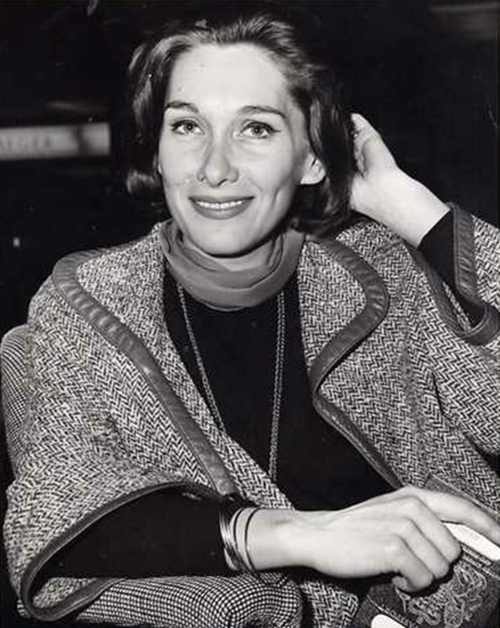Tenn, in Conversation
Tujagues Restaurant
New Orleans
1982
I would happily throw myself upon the mercies of Siân Phillips. I would happily be her mendicant. I would do this knowing full well that she might well have misplaced the keys to the home in which she would feed and coddle me, but the adventure in finding the keys, the murmurs of comfort, the assurances of impending care, would be the real cure I would need, the respite from the rude world.
She is violently committed to her work, to her living, to the amusement and ablutions of others. She is terribly glamorous, but she was bone-weary, blanched, and parched of soul when she was my Hannah [in The Night of the Iguana], and she perpetually challenges herself. The easiest thing in the world would be to simply cast the thin, waspish woman with classical training, but she seems always to be calmly resisting this tendency. I wish her well. I so love her.
Her primary role for some time was to be the wife of Peter O'Toole, that wonderful, double-phallic actor of enormous gifts and charms and curses. I recognize in him so many of my own maledictions. We have a pattern here, I think, in seeking Siân to serve us mendicants with maledictions. Who, then, is her servant? Perhaps her audiences, who have never, to my knowledge, been left wanting: She feeds and cares for them too.
I saw her once in an airport: We were all of us scattered across the world, or heading there. She was, she told me, in charge of Peter's stomach--that delicate organ was virtually necrotic, but she was on the job, a good Welsh nurse, with her caring heart and all the skills she had learned at the feet, I'm sure, of Flora Robson. I am told the stomach was saved.
The chic child, whose strain is remaining innocent while appearing to be wholly possessed of the world's wits.
Her style, her energy, burns on anger and I wonder at its source.
Paris, Noel Coward told me, can sit as it does because it is, when all is over, when all is decay and delusion, still Paris. There is simply the reality of its being and its worth, and so it is with Siân: She can endure, I suppose, because when all is said and done, she exists, and that is enough.
Rustic, runic, and regal.
There is a Cassatt, in which a plump, rosy child reclines, aware of her comfort, of the rewards of an afternoon, surrounded by plushness and the promise of sensual caresses to come. A calming blue surrounds her. I am that child when I am reached by the ladies of the fog, and I feel this sensation, or series of sensations, when I see Siân.
Mary Cassatt, Little Girl in a Blue Armchair, 1878.
Authors Note: I was fortunate enough to escort Siân Phillips to the Metropolitan Museum of Art--on a Monday, when it was closed to the public--and stand with her before this Cassatt painting. It is a moment I will treasure, not only for being with her when she saw the painting as Tenn had, but for the company and comments of our guests--writer Paul Rudnick and his partner John Raftis, and actor Niall Buggy.
It was a day like those Tenn promised Phillips could deliver: "Mad and sweet and fulsome and far, far too short."



Comments
Post a Comment
Thank you for your comments. The moderators will try to respond to you within 24 hours.